Submitted by WA Contents
The Hungarian Pavilion will explore the Museum of Ethnography in Venice Architecture Biennale
Hungary Architecture News - Apr 18, 2023 - 09:33 2372 views

The Hungarian Pavilion has released details about its exhibition at the 18th International Architecture Exhibition in Venice Architecture Biennale 2023.
The exhibition, themed Reziduum – The Frequency of Architecture, focuses on a new museum building, the Museum of Ethnography in Budapest.
Designed by Marcel Ferencz (Napur Architect), the project was completed in 2022 as a part of one of Europe’s most notable large-scale cultural and urban development programmes, the Liget Budapest Project.
The Hungarian Pavilion can be visited at the Giardini venue from 20 May to 26 November 2023 in Venice, Italy.
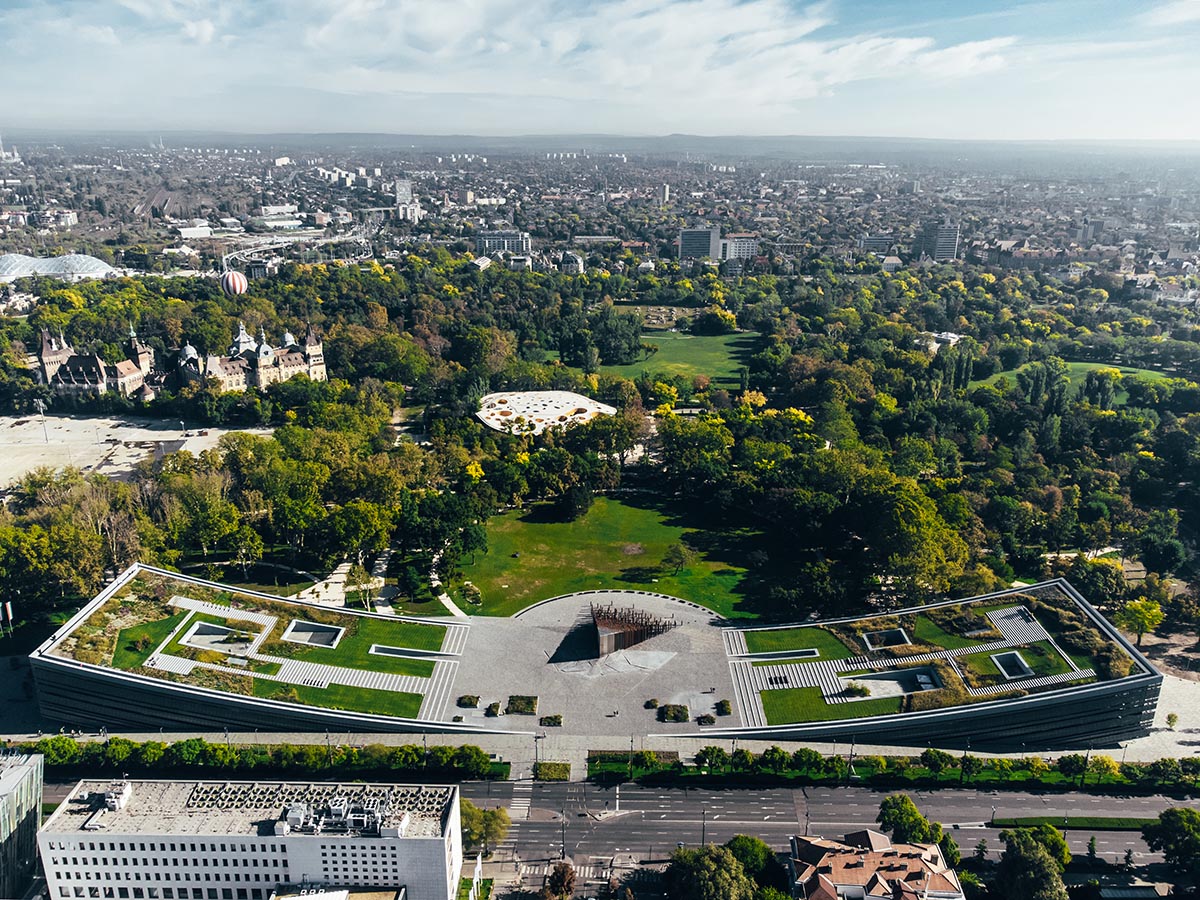
Museum of Ethnography. Image © László Incze
Curated by Mária Kondor-Szilágyi, the exhibitors include architect Marcel Ferencz, architect and composer Péter Mátrai, architect Judit Z. Halmágyi and light designer Ferenc Haász.
Through Reziduum, the team aims to create a representation of a cultural memory where the different ethnological layers become visible - from the historical artefacts, the new building and its urban context to contemporary music.
The Museum of Ethnography has two wings that evoke an imaginary circle with a diameter of one kilometre, and the surface of the building expands into a rooftop garden of more than 7,000 square metres in size.
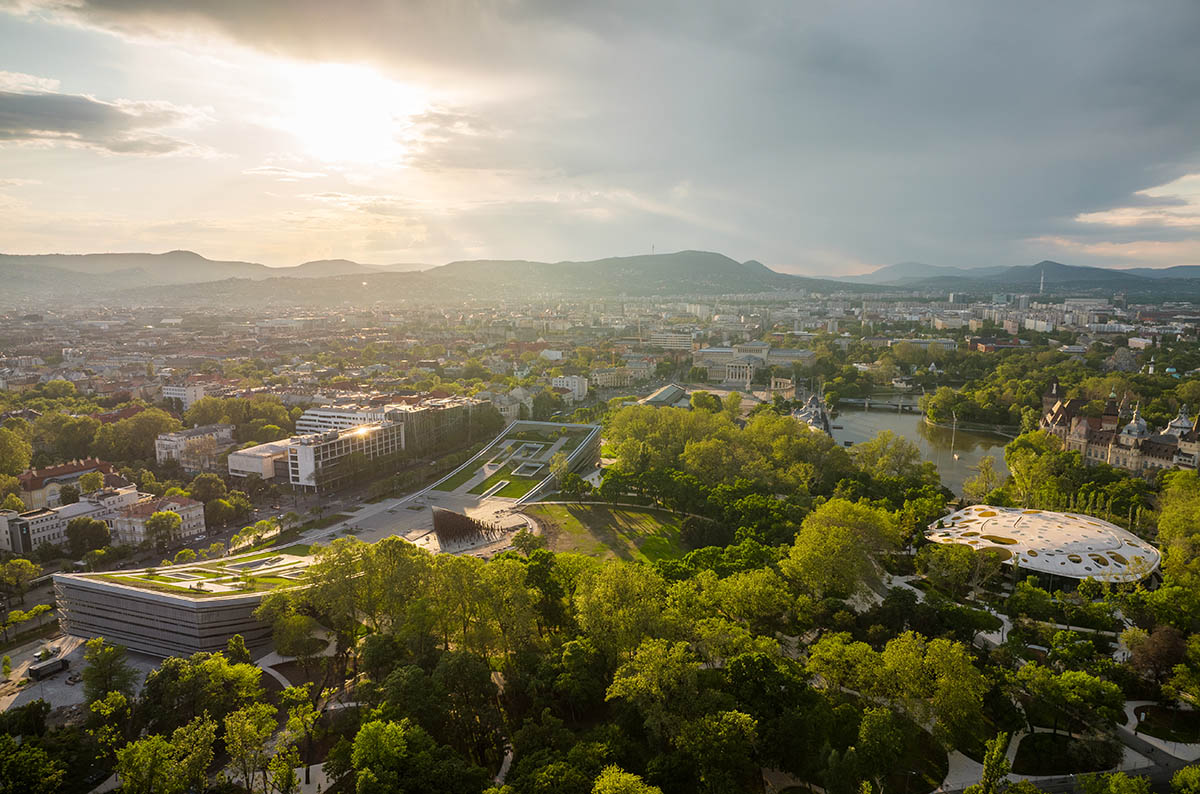
Liget Budapest Project. Image © György Palkó
What visitors see is not merely a perfect segment of a circle but also a gateway between the natural landscape of the renewed City Park and the pulsating city life.
The architect emphasised this function of conveyance and transmission through the embellishment of the metal shading lattice which envelopes the façade of the building, adorning it with contemporary transcriptions of the ornamental patterns used by the various traditions and cultures displayed and preserved in the museum.
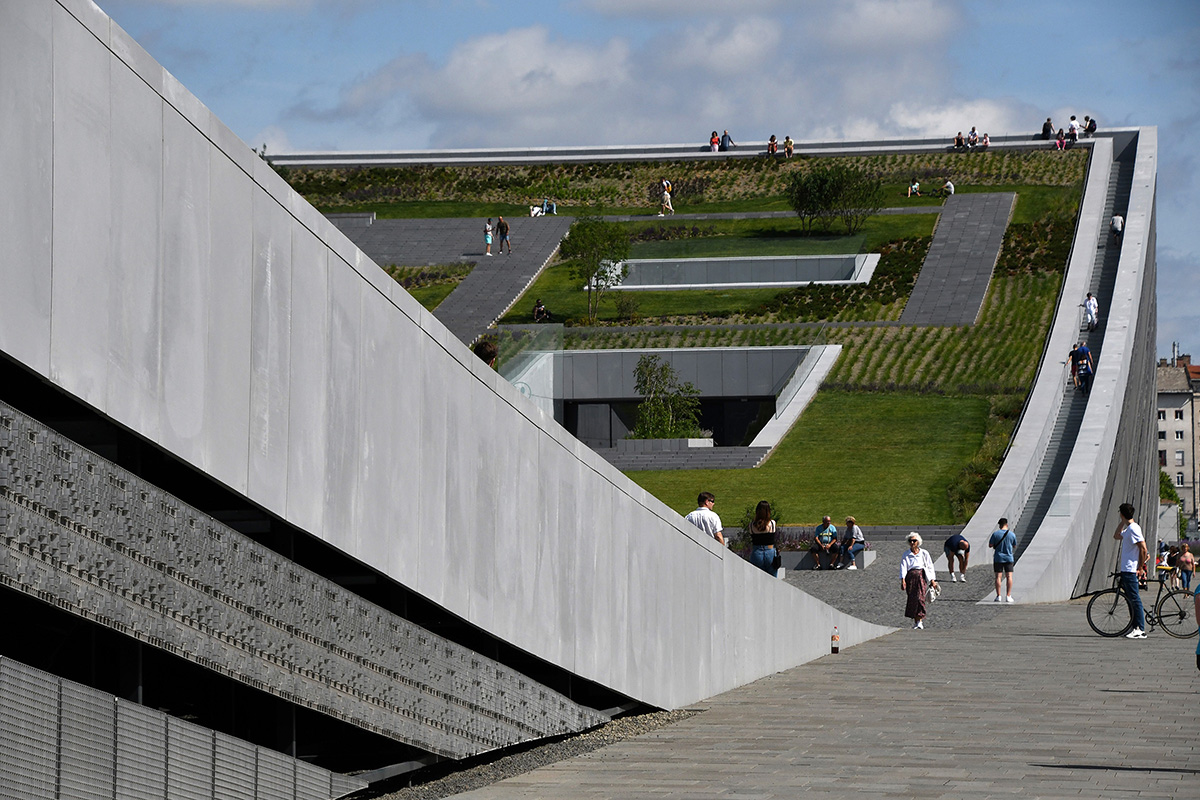
Museum of Ethnography. Image © László Incze
Counting nearly half a million pixels, the façade ornamentation is an interwoven tapestry of Hungarian and worldwide culture, symbolising the unparalleled richness of the Museum of Ethnography's collection of a hundred and fifty years, and is the first sight to welcome visitors to the museum.
In a separate space inside the Pavilion, the visitors can also see the ornamental lattice exhibited under special laser lighting.
Here, the music is present as an object in the form of a new contemporary instrument – the Soundcylinder, designed by architect and composer Péter Mátrai.
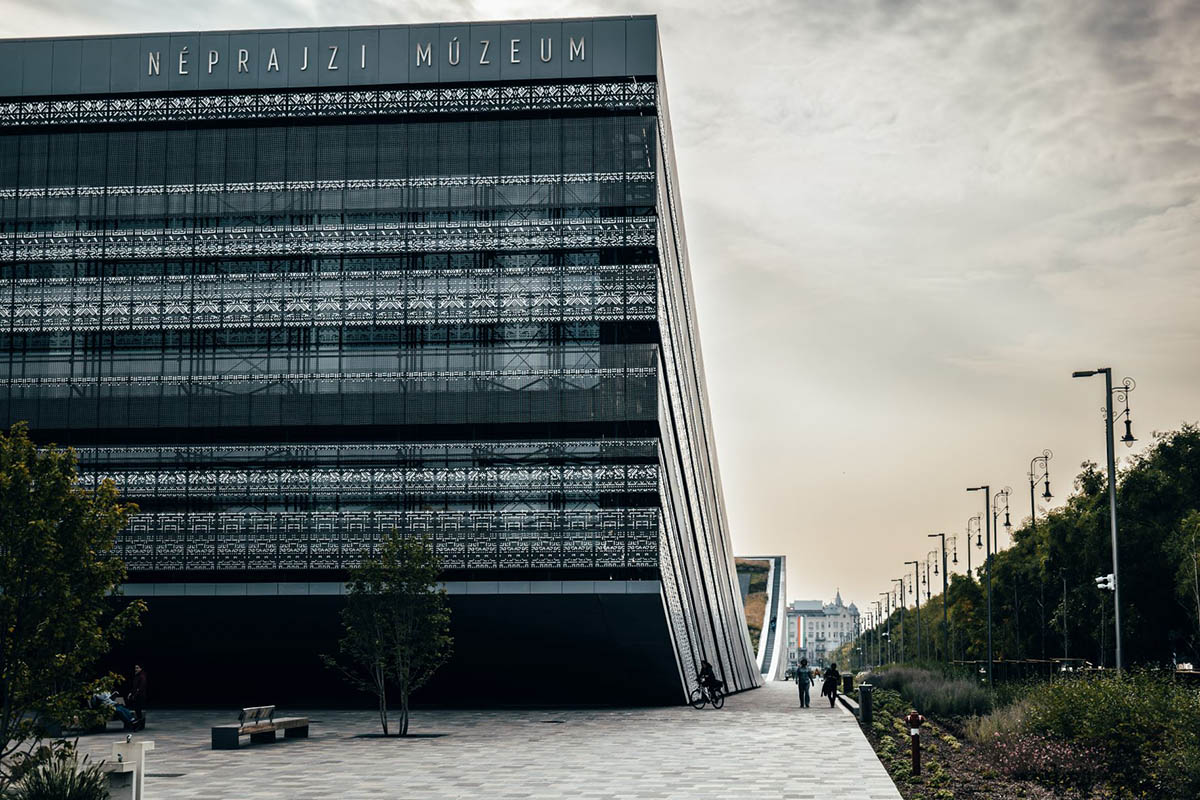
Museum of Ethnography. Image © László Incze
While the Soundcylinder rhymes with the idea of the circle evoked by the Museum of Ethnography, it is also represented as a musical motif, presenting an audible relationship between the building and music.
In addition, the urban and landscape architectural context of the building is illustrated through a model, which is exhibited in the pavilion's courtyard. It showcases the completed developments and further buildings planned by the Liget Budapest Project.
Visitors will also experience the museum's collection in an animated short film, called Ethnozoom, created by an interactive computer program, the MotifCreator.
The application developed by MOON42 and contains more than 1001 vectorised ornaments and motifs from the Museum of Ethnography’s Hungarian and international artefacts collection.
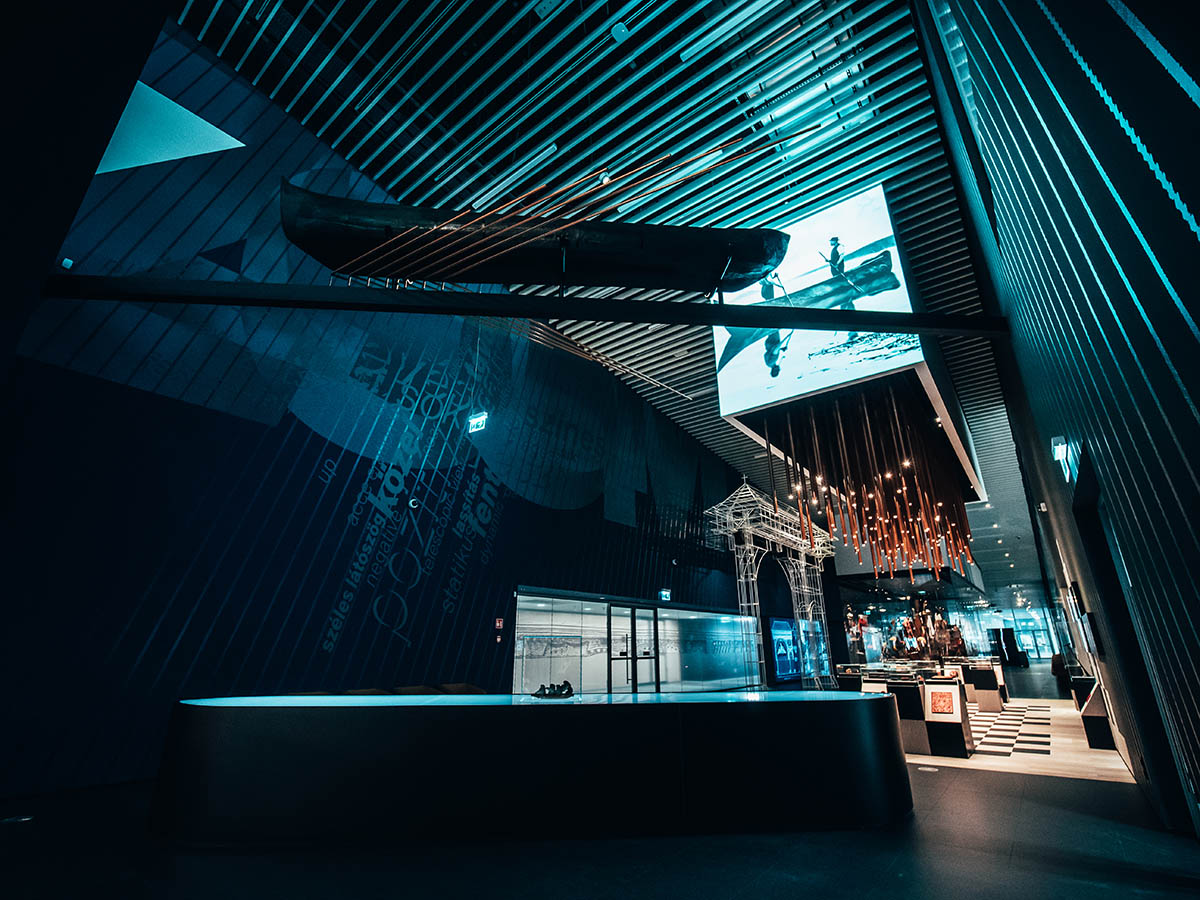
Exhibition interior, Museum of Ethnography. Image © László Incze
With the program running on touchscreen, visitors will be able to create and download their own unique motifs composition while contributing to a worldwide community creation.
The Venice Architecture Biennale 2023 will take place from Saturday 20 May to Sunday 26 November, 2023 at the Arsenale and Giardini venues.
The theme of the 18th Venice Architecture Biennale is The Laboratory of the Future curated by Lesley Lokko.
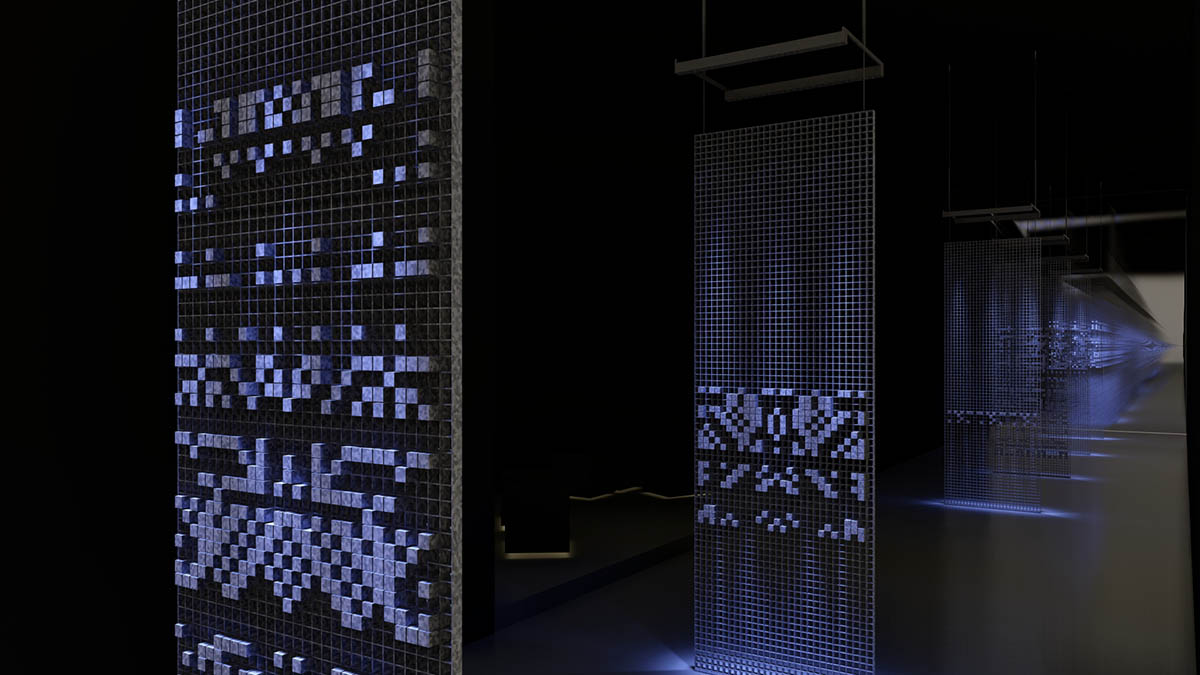
Reziduum, Exhibition lay-out. Image courtesy of Napur Architects
Several pavilions announced their themes and details for the 2023 Venice Architecture Biennale, such as Gabriela De Matos and Paulo Tavares were announced as the curators of the Brazilian Pavilion, the Danish Pavilion will explore Coastal Imaginaries curated by Josephine Michau.
More recently, the Korean Pavilion announced its theme, 2086: Together How?, the Austrian Pavilion presented its theme PARTECIPAZIONE / BETEILIGUNG, the Spanish Pavilion presented its theme Foodscapes at the Venice Architecture Biennale, the Polish Pavilion will present Datament, the Türkiye Pavilion will present Ghost Stories: The Carrier Bag Theory of Architecture, The Bulgarian Pavilion will explore Education is the Movement from Darkness to Light at this year's biennale.
Top image: Exhibition interior, Museum of Ethnography. Image © László Incze.
> via Hungarian Pavilion
